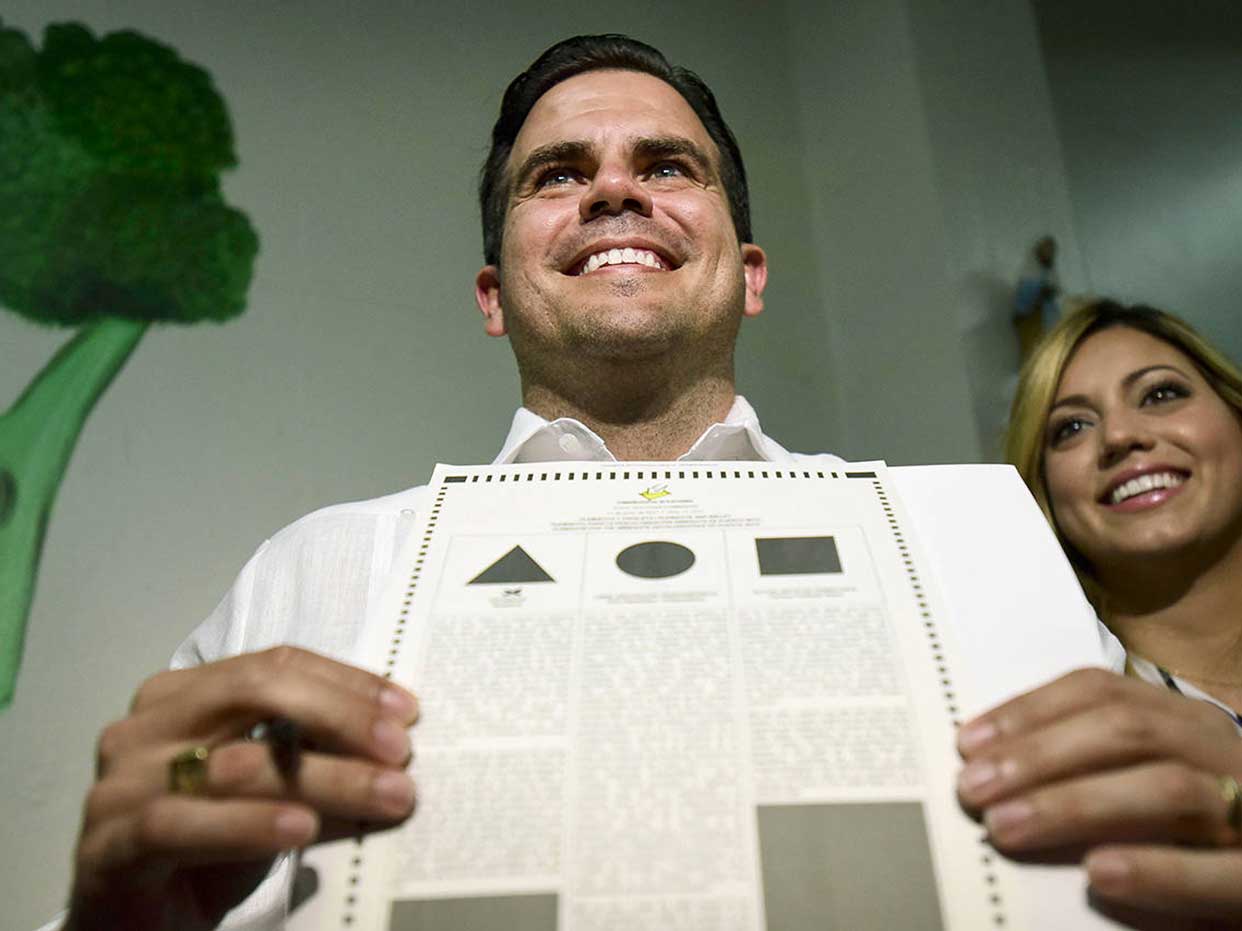Puerto Rico votes to become 51st state of America
Referendum shows 'overwhelming support' to join US, but critics accuse ballot of being flawed

A free daily email with the biggest news stories of the day – and the best features from TheWeek.com
You are now subscribed
Your newsletter sign-up was successful
Puerto Rico has voted to ask the US Congress to grant it full statehood in a non-binding referendum that had 97.1 per cent of voters in favour of the plan.
Governor Ricardo Rossello claimed victory, even though opposition leaders boycotted the ballot and turnout was less than 23 per cent.
"The federal government will no longer be able to ignore the voice of the majority of the American citizens in Puerto Rico," he said.
The Week
Escape your echo chamber. Get the facts behind the news, plus analysis from multiple perspectives.

Sign up for The Week's Free Newsletters
From our morning news briefing to a weekly Good News Newsletter, get the best of The Week delivered directly to your inbox.
From our morning news briefing to a weekly Good News Newsletter, get the best of The Week delivered directly to your inbox.
However, critics have called the referendum "meaningless" and an "absolute, unmitigated disaster".
Former governor Anibal Acevedo Vila said in an interview: "A 97 per cent win is the kind of result you get in a one-party regime. Washington will laugh in their faces."
At the moment, residents on the Caribbean island, a US territory since 1898, have US citizenship but cannot vote in federal elections and have no formal representation in Congress.
Meanwhile, Puerto Rico's economy has been in recession for a decade and it faces debts of $49bn (£38bn) in pension obligations and $74bn (£58bn) which it cannot pay.
A free daily email with the biggest news stories of the day – and the best features from TheWeek.com
"Some see statehood as the best way to pull Puerto Rico out of its economic crisis," says CNBC. "Others blame the US for the malaise and would rather seek independence."
If accepted, the island will become the 51st state of the US, more than 50 years after Hawaii joined.
-
 Antonia Romeo and Whitehall’s women problem
Antonia Romeo and Whitehall’s women problemThe Explainer Before her appointment as cabinet secretary, commentators said hostile briefings and vetting concerns were evidence of ‘sexist, misogynistic culture’ in No. 10
-
 Local elections 2026: where are they and who is expected to win?
Local elections 2026: where are they and who is expected to win?The Explainer Labour is braced for heavy losses and U-turn on postponing some council elections hasn’t helped the party’s prospects
-
 6 of the world’s most accessible destinations
6 of the world’s most accessible destinationsThe Week Recommends Experience all of Berlin, Singapore and Sydney
-
 Epstein files topple law CEO, roil UK government
Epstein files topple law CEO, roil UK governmentSpeed Read Peter Mandelson, Britain’s former ambassador to the US, is caught up in the scandal
-
 Iran and US prepare to meet after skirmishes
Iran and US prepare to meet after skirmishesSpeed Read The incident comes amid heightened tensions in the Middle East
-
 Israel retrieves final hostage’s body from Gaza
Israel retrieves final hostage’s body from GazaSpeed Read The 24-year-old police officer was killed during the initial Hamas attack
-
 China’s Xi targets top general in growing purge
China’s Xi targets top general in growing purgeSpeed Read Zhang Youxia is being investigated over ‘grave violations’ of the law
-
 Panama and Canada are negotiating over a crucial copper mine
Panama and Canada are negotiating over a crucial copper mineIn the Spotlight Panama is set to make a final decision on the mine this summer
-
 Why Greenland’s natural resources are nearly impossible to mine
Why Greenland’s natural resources are nearly impossible to mineThe Explainer The country’s natural landscape makes the task extremely difficult
-
 Iran cuts internet as protests escalate
Iran cuts internet as protests escalateSpeed Reada Government buildings across the country have been set on fire
-
 US nabs ‘shadow’ tanker claimed by Russia
US nabs ‘shadow’ tanker claimed by RussiaSpeed Read The ship was one of two vessels seized by the US military